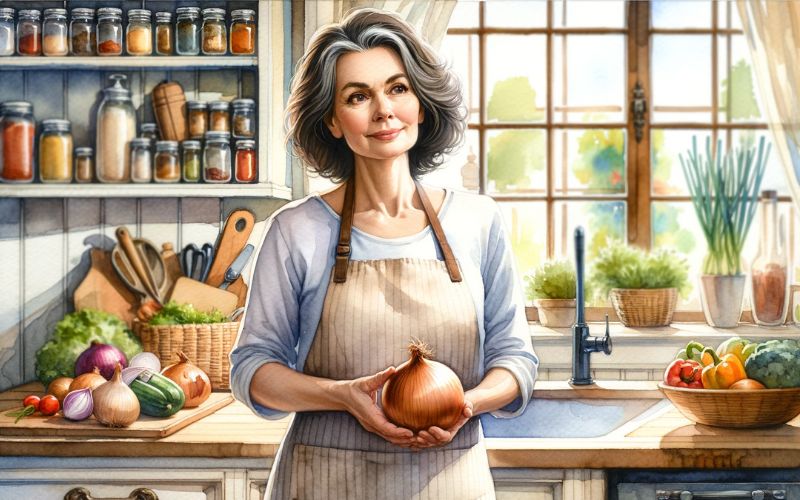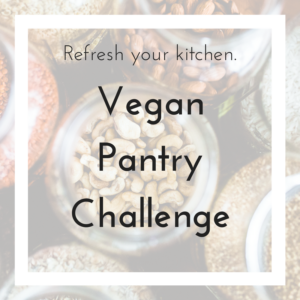Can cooking be a spiritual practice? In this hyper-scheduled, busy life, preparing meals at home from scratch is often perceived as either a dreaded chore or something one does as a hobby. What if instead we could take advantage of the time we spend cooking to expand our mind and make our lives more meaningful and enjoyable?
Just ten years ago, if anyone suggested that cooking can be a source of not just physical but also spiritual nourishment, I probably would have said they were out to lunch. My perspective is shifting now and I am experimenting with some rituals that may help me expand my heart and mind. This is very much a work in progress, but I thought I would share with in case this inspires you to find new meaning in the kitchen.

Saying grace… before I cook
Some practice the tradition of saying grace before eating a meal, but what about expressing gratitude before we cook?
When I walk into the kitchen to prepare a meal, I am often frazzled from a busy day and perhaps a little resentful about having to cook yet another meal. A shift in mindset, a reframing of the task at hand is necessary: I don’t have to cook, I get to cook.
- I am thankful to have ingredients to cook with, like fresh vegetables which are a gift from the soil, the rain, the sun, and the workers all along the food production and distribution chain.
- I do not take my family for granted and I savor every day that I get to share a meal with my children and with my husband, because nothing is permanent.
- I appreciate the privilege of having a well-stocked kitchen with all the pots, pans, and utensils I need and more, plus an inventory of seasonings that will make the dishes extra tasty and healing.
- I have my two hands and I’m standing on my two feet, there’s electricity and running water, and it feels pleasantly warm in the kitchen. Can it get any better than this?
Take a moment with me to pause and express gratitude for all that we have and that makes the experience of cooking a meal for ourselves and our loved ones possible.
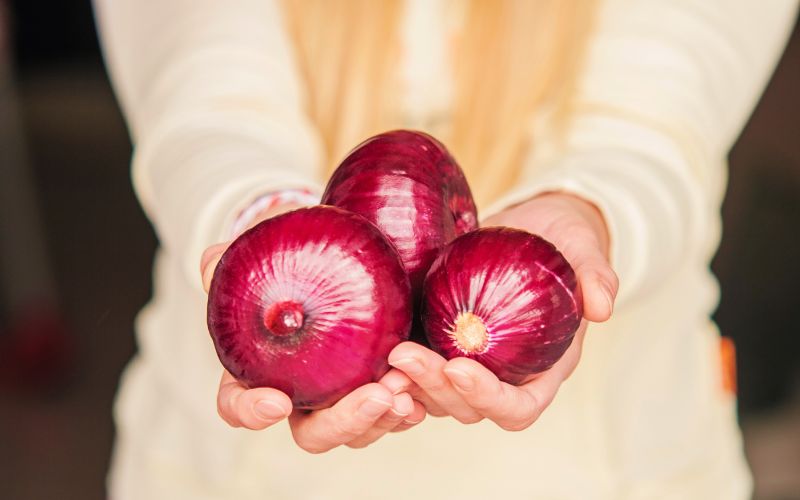
Look deeply into the ingredients
The food that we eat connects us in the deepest possible way to the world around us. The living beings we consume for sustenance are made of cells that will be broken down and metabolized by our own cells, becoming the building blocks of our blood, skin, muscles, bones, and every part of our body. The food carries its past and becomes our future.
When I chop an onion, I look deeply into its origins. I think of the soil that cradled the seed and, into the depth of time I see the endless generations of onions that came before this one. I know that the water that plumped up the onion cells comes from snow up in the mountains and is now right here in my kitchen. I connect with the hand that pulled it out of the ground, but I am also aware that it was probably a combination of diesel-fueled machines, designed by engineers and operated by farm workers, that harvested the bulb, carried it to bins, and eventually helped it make its way to the store. I visualize the fiery heat in which the blade of my knife was forged, the forest that was cut down to make my cutting board and thousands of others like it.
Not every part of my food’s past is nice to look at but if we are to know our selves we need to know where our food comes from. If what we see when we look deeply into the ingredients makes us uncomfortable, we can make some changes to what and how we eat, and work towards a better food future.
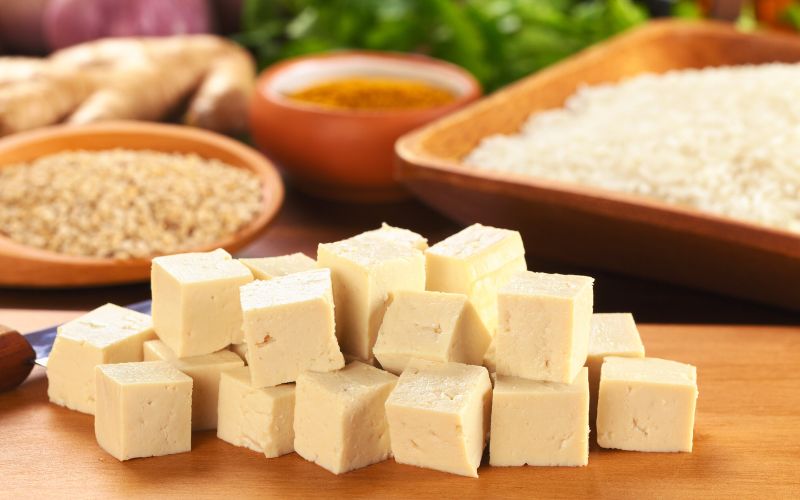
Be fully present
Breathing in, I know I am breathing in. Breathing out, I know I am breathing out.
Breathing in, I have arrived in the kitchen. Breathing out, I am at home in the kitchen.
Taking just one moment to reconnect with my breath helps me be fully present. Aside from being a spiritual practice that reconnects my spirit and my body, mindful presence helps me avoid spills and injuries.
Having reconnected with my breath, I can pay careful attention to the messages from my five senses.
- I see the shapes and colors of the vegetables, containers, and cooking tools.
- I hear the sizzling of water droplets as they leave the flesh of the mushrooms and evaporate upon contact with the hot surface of my skillet. When the skillet goes quiet, it’s time to add another vegetable.
- I can smell the spices. I notice the scent of caramelization and I learn to reduce the heat before my precious food burns.
- I feel the the delicate texture of silken tofu and the coarser grain of the extra-firm. The warmth from the hot water on my wrists embraces me as I wash dishes.
- I taste ingredients before, during, and after cooking them, becoming more familiar with their evolution from raw to cooked, bland to seasoned.
Being fully present as I cook means I’m more focused, less stressed, and enjoying the process more. Mindfulness makes it easier to learn and grow when I practice the important act of preparing food for myself and my loved ones.
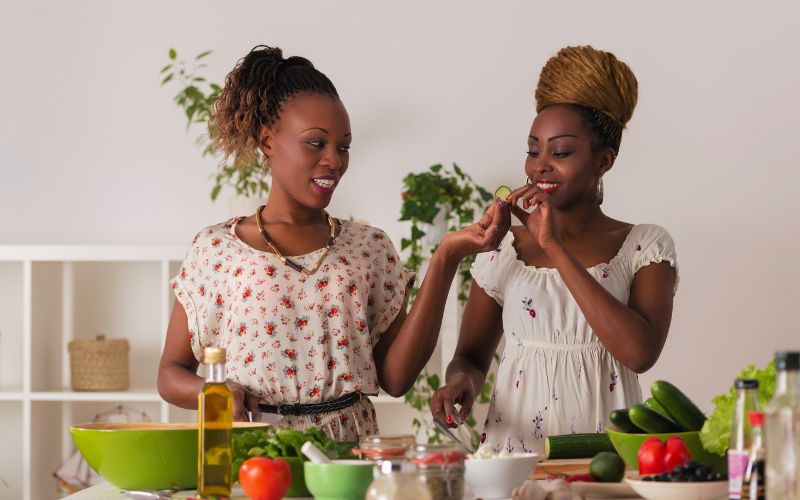
Cook with my community
Engaging in community activities is not just about socializing, though that’s great. When done mindfully, it’s also a way to connect to something bigger than myself by being in the presence of people who come from a range of different horizons, practicing gratitude for the many gifts they bring to the world, and enhancing the meaning of my own life by serving others.
Cooking with others takes this connection to a higher level as we are enjoying each other’s presence and catching up with our lives, while also quite literally helping build each other’s bodies. We are doing an act of service together, joining forces to feed ourselves and our loved ones really good food. This is also an act of resistance against the consumerist forces that seek to turn our meals into just another commercial transaction.
The times being what they are, much of my community cooking takes place on Zoom these days, in my plant-based batch cooking club. It’s not exactly the same as working shoulder to shoulder with a few friends and neighbors in my home kitchen, but there’s also benefits. We get to come together, cooking very similar dishes and sharing the same aspirations of good health and gentler living, despite the thousands of kilometers that separate our kitchens. If there is space in your life for in-person kitchen gatherings to cook up some healthy vegan meals, I also warmly recommend you try it, and see how it helps you grow.
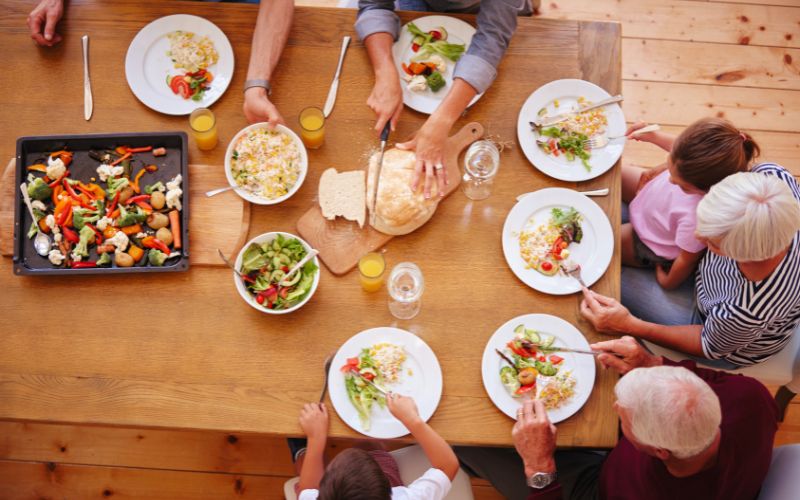
Eat and share
Food is love. When I set a meal on the table and call my husband and children to come to dinner, I am not just trying to fill their tummies and satisfy their hunger. I am offering the most intimate gift, being the food that I prepared with care, time, effort, concern, and creativity for the purpose of nourishing and building their bodies and mine.
Let’s be candid: it’s also often an opportunity to practice equanimity, or calmness and evenness of temper in a difficult situation, as my children in particular can sometimes resist the gift, or my husband might add so much hot sauce that I wonder if he noticed what was on the plate.
Beyond my immediate family, cooking healthy vegan food to share with others makes my broader circle of compassion more tangible. Keeping myself open to the suffering of others around me and bringing them a bit of comfort and relief can be as easy as delivering a pot of soup or a half-dozen homemade muffins.
What do you think?
Spirituality is not just for when we are going to a place of worship or intentionally taking a moment to meditate or pray. It can be woven in the fabric of our daily life, including while we cook really good food for ourselves and others. I am just getting started on the path of consciously using my kitchen time for spiritual growth, and would love to learn more from your own practices and experiences.
* The feature image for this post was created with the assistance of DALLE-3.

